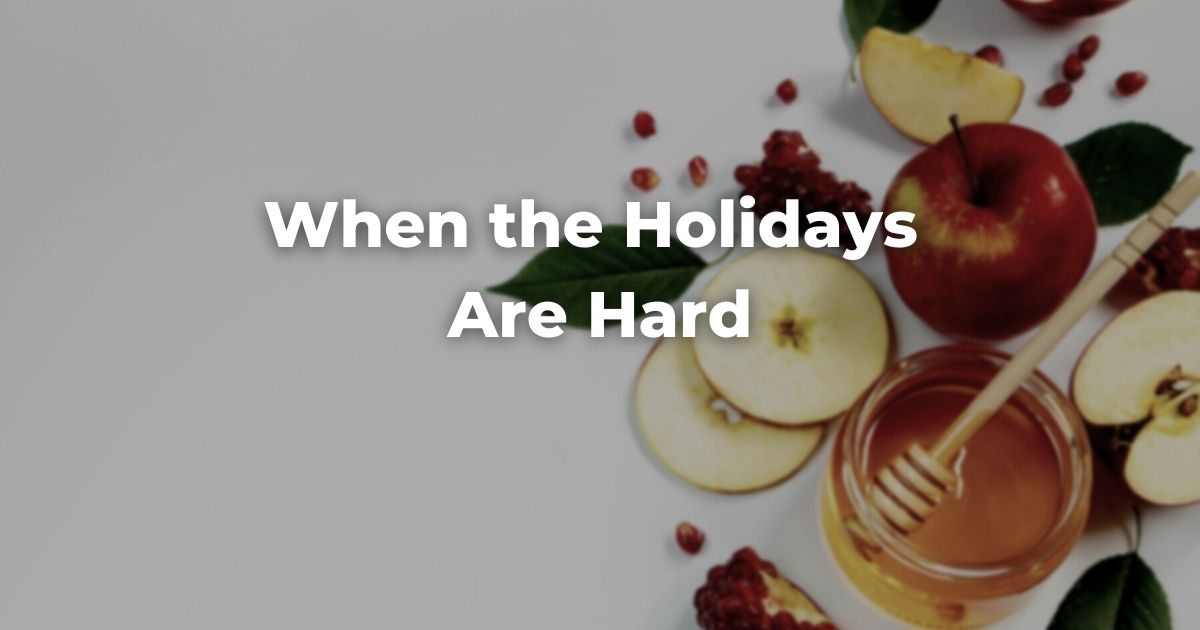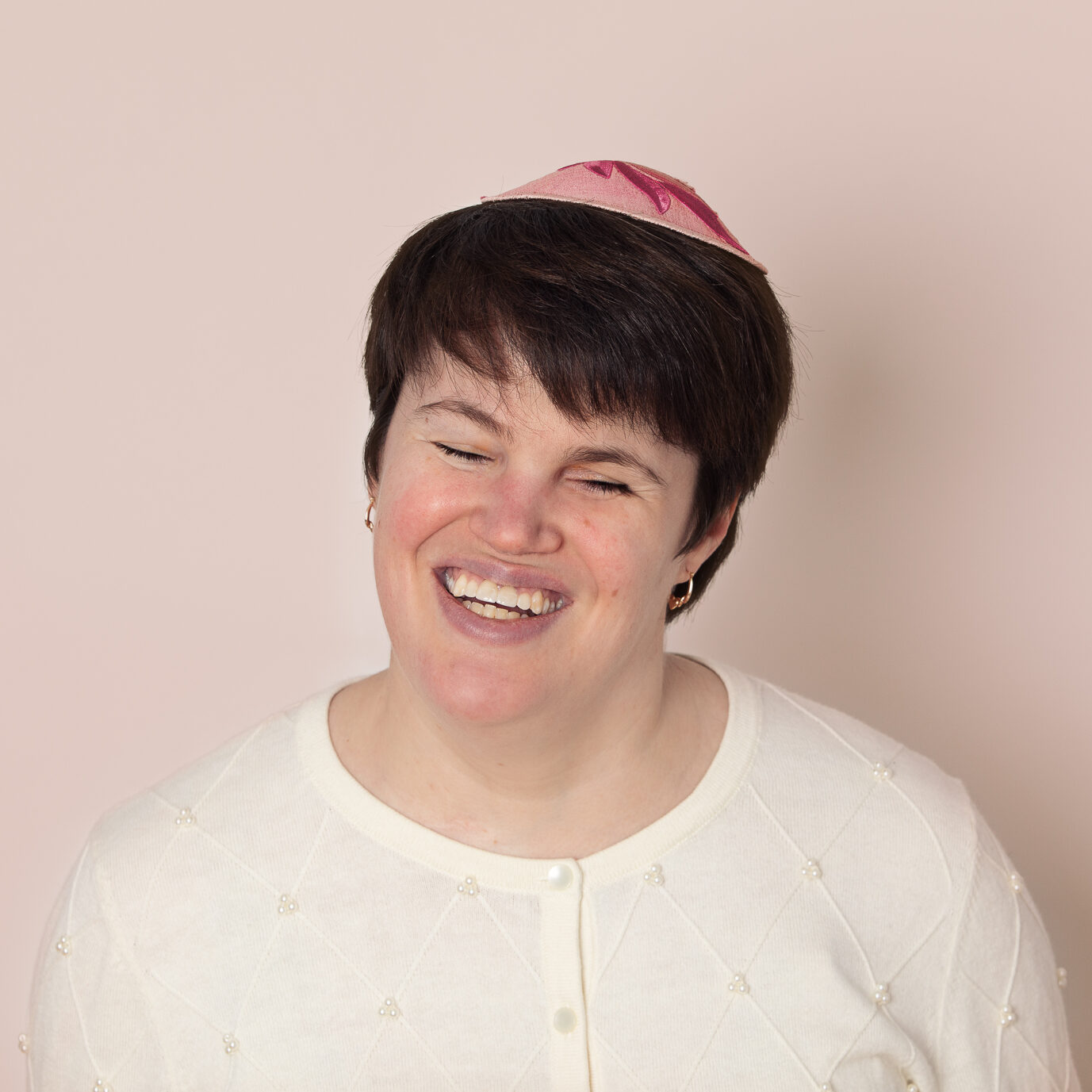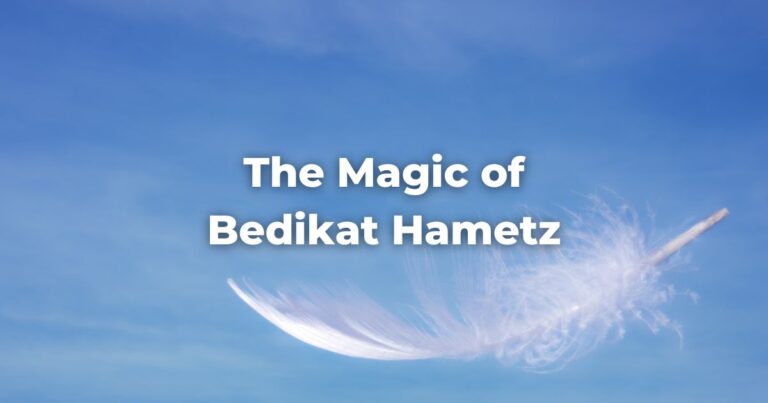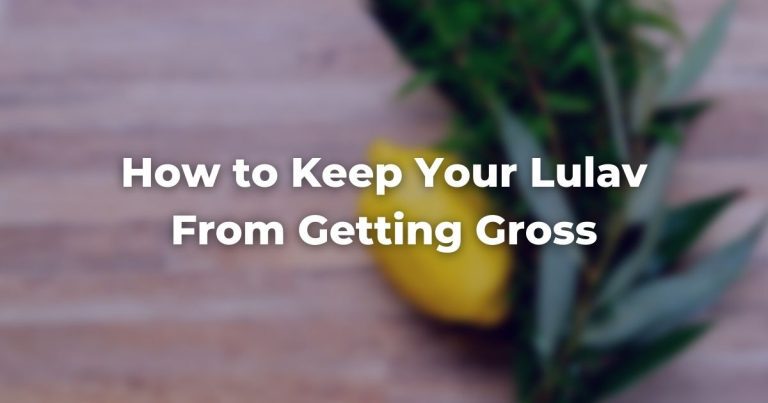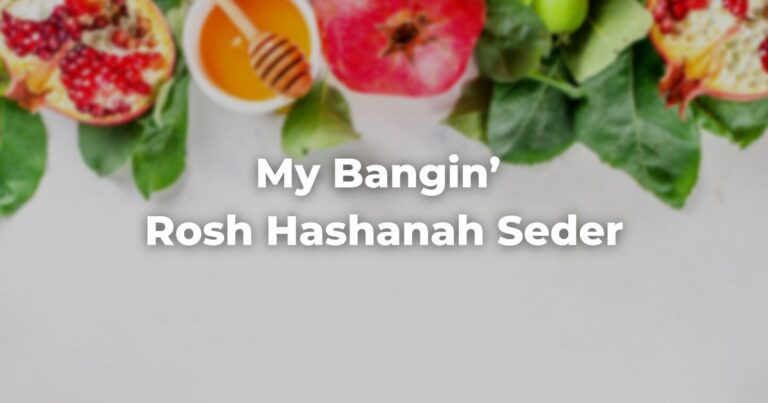This piece is part of Exploring Judaism’s 5785 High Holiday Reader. Download the whole reader here.
Why are the holidays hard?
It’s Elul. Everyone around you is talking about their Rosh Hashanah plans, maybe going home to family, maybe gathering with friends. Perhaps you are someone for whom the holidays carry a lot of heaviness—and not because of their themes or liturgy but because you aren’t having the traditional family experience. You may wonder if there’s even a place for you in this family-centric, communal experience. Is there enough room for me?
Holidays are hard for lots of us for many reasons. Here are just a few, though this is by no means an inclusive list nor is it meant to be:
- You live far from family and aren’t able to make it to them for the holiday. You are more/less observant than your family and find holidays to be fraught and uncomfortable. You embraced Judaism later in life and aren’t currently a part of a Jewish family or community. You live far from Jewish community and are only able to connect online. What a blessing that we live in a world where such genuine connectivity is possible.
- You are immune-suppressed, high-risk for COVID, still taking the pandemic seriously and it isn’t safe or possible to be part of large gatherings.
- You are estranged from family, friends or community. There is too much broken in the community you were a part of to make it feel possible to return.
- You recently ended a relationship.
- You experienced a significant loss this year.
Just like any community, the Jewish community has a mixture of folks from all walks of life. If we’re being honest, though, sometimes it feels like that isn’t the case. These feelings of alienation and separation are common and are felt by people in all kinds of Jewish spaces. If we feel like we don’t fit the mold being projected to us by everyone around us, we may stop and ask ourselves if we belong here.
If we don’t feel grounded and supported, this may leave us wondering if Judaism is for us at all.
For those who have the privilege of embracing Judaism later in life—either through conversion or through increased observance, it can feel especially hard without that built-in familial support.
Where do we go from here?
If you find yourself resonating with this, you may be wondering what to do. It’s great to surface and name all of these issues but where do we go from here?
We are reminded 36 times in the TorahRefers to the first five books of the Hebrew Bible, the Tanakh, also called the Five Books of Moses, Pentateuch or the Hebrew equivalent, Humash. This is also called the Written Torah. The term may also refer to teachings that expound on Jewish tradition. Read more not to oppress the ger/stranger, for we were strangers in the land of Egypt. In other words, we must always cultivate empathy for those who were outsiders, as we were once outsiders ourselves—and many of us still are.
One of the greatest pieces of spiritual advice I received while a rabbinical student was to never forget that Jewish community is fundamentally made up of human beings, each of whom carries so much.
Perhaps you’re not part of a large community but you may have a few friends or acquaintances. That is just as much a community as any large congregation or other space. If you feel up for it, reach out and ask if a few friends want to gather for a simple activity to usher in Rosh Hashanah. That could be gathering for a meal, gathering for tashlich near a body of water, or it could be a time for intention-setting.
(See more: “My Bangin’ Rosh Hashanah Seder“)
Some communities offer meal matching as well. Bear in mind this is often done by volunteers and they aren’t always able to find people a meal despite their best efforts. It is always worth trying.
If you’ll be in synagogue this year, you may find yourself feeling anonymous in the large crowd. Many synagogues in the Conservative movement are implementing a system of high holiday ushers whose job it is to be a friendly presence for folks walking into the synagogue. If you don’t have an established community yet, most communities offer free or discounted high holidays tickets and no one is turned away for financial reasons. Bear in mind that tickets are in place for space constraint reasons and because synagogues have to raise the funds required to keep their doors open. Standard membership only covers a portion of these costs.
If you aren’t physically able to attend a synagogue in person this year, synagogues continue to offer livestreaming.
It is so important to allow yourself to feel the feelings you are having this time of year and not to push them away.
By doing so, we allow ourselves to be aligned and honest with ourselves and where we are so we can make choices from a place of self-compassion.
I want to wish us all a shanah tovah u’metukah—a happy and good new year—however we observe it. May you find that which you seek.
Author
-

Rabbi Tuchman is a sought after spiritual leader and Jewish educator based in the Washington, DC area. She teaches Jewish contemplative and spiritual practices, in addition to consulting with communities and leaders on issues pertinent to disability inclusion.
View all posts http://contemplativetorah.substack.com/

